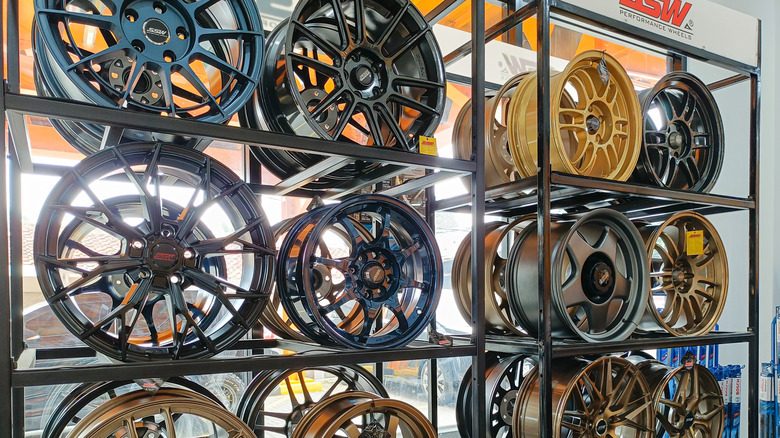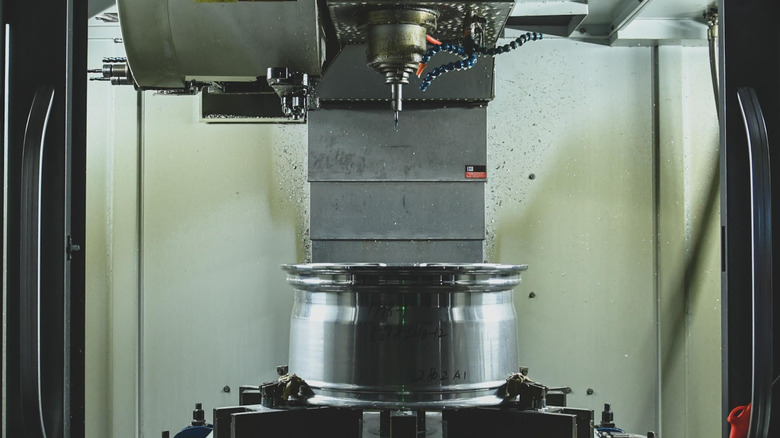Why You Should Avoid Cheap Aftermarket Rims
There is a lot of skepticism around cheap aftermarket rims. They may look like a good deal, but while they might enhance the looks of your vehicle for very little money, they can actually be a safety hazard. This is mostly because of how the wheels are constructed. You are much better off using standard factory rims, which already come with your vehicle, rather than upgrading or even getting used wheels rather than cheaper aftermarket ones.
That being said, it is not the case every time, and there are some well-known brands that do offer good rims on a budget. But you have to be wary of what you are buying. There is also a huge market of replica wheels, and some of them are very difficult to differentiate from the original ones. It also depends on your use case — if you are going to the track or off-road, you should definitely invest in a good set of wheels made by a brand with a good reputation.
Choosing cheap aftermarket rims can be highly dangerous. Using cheaper methods to manufacture wheels means that there are chances that the strength of the wheel is compromised in order to save costs. There have been various cases where cheap rims have not only shattered while going over a bump or pothole, but caused a major crash.
Different types of wheel making methods and what should you choose
The most important part of a wheel is how it is manufactured. Most rims, even stock ones that come on a car, are made through a process called casting. This is good enough for most wheels, but there are also manufacturing processes like forging that create stronger and lighter-weight rims. At the end of the day, all the costs saved up will be in the wheel's manufacturing process and its materials which is why going for cheap aftermarket ones is not a good idea.
When talking about saving costs, many aftermarket companies that produce cheap rims will use a method like gravity casting. In this, the earth's gravity is used to pour the metal into the mold. This is the easiest way to make a wheel, but there are quite a few downsides as well. With gravity casting, there are usually problems with porosity, shrinkage, and impurities in the metal. This collectively weakens the strength of the material. They need to be designed properly and often require extra metal in places to account for the porosity.
OEMs, when producing rims, employ rigorous testing methods to make sure that they can withstand the wide range of conditions a car will go through. When shopping for wheels, avoid brands you don't know about or have never heard of. Companies like BBS, Enkei, Rays Engineering and OZ Racing not only make aftermarket rims but also produce rims for manufacturers. Enkei is a great budget option even for track use and there are other companies like Konig and Sparco which make great wheels for a reasonable price as well.

